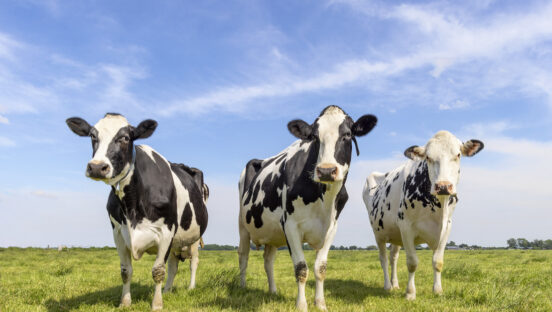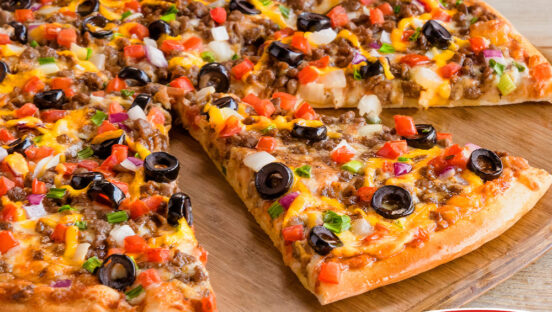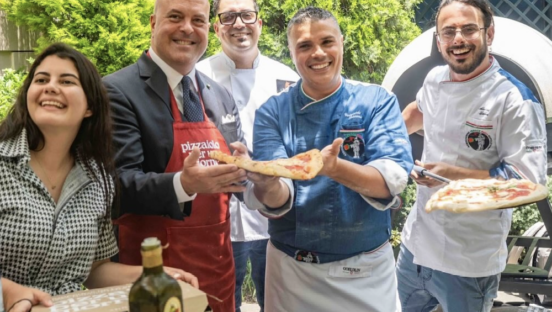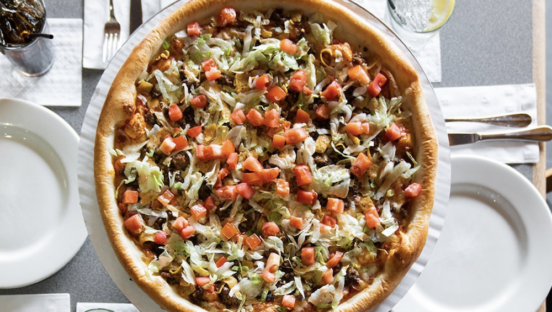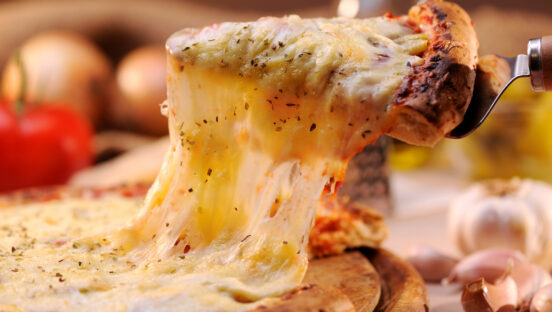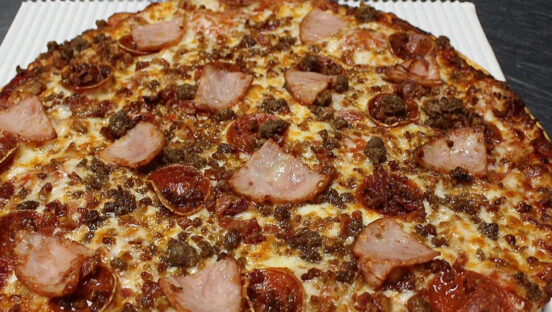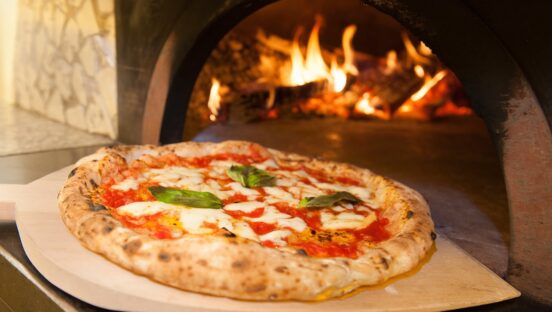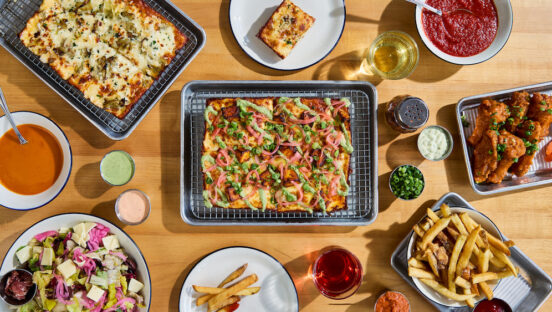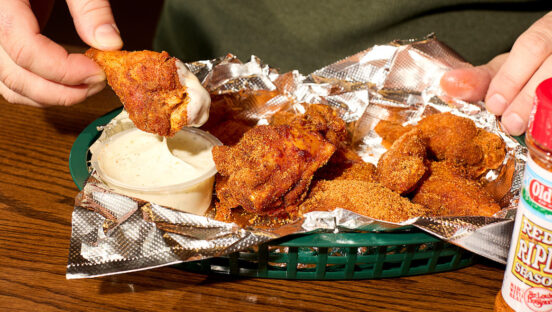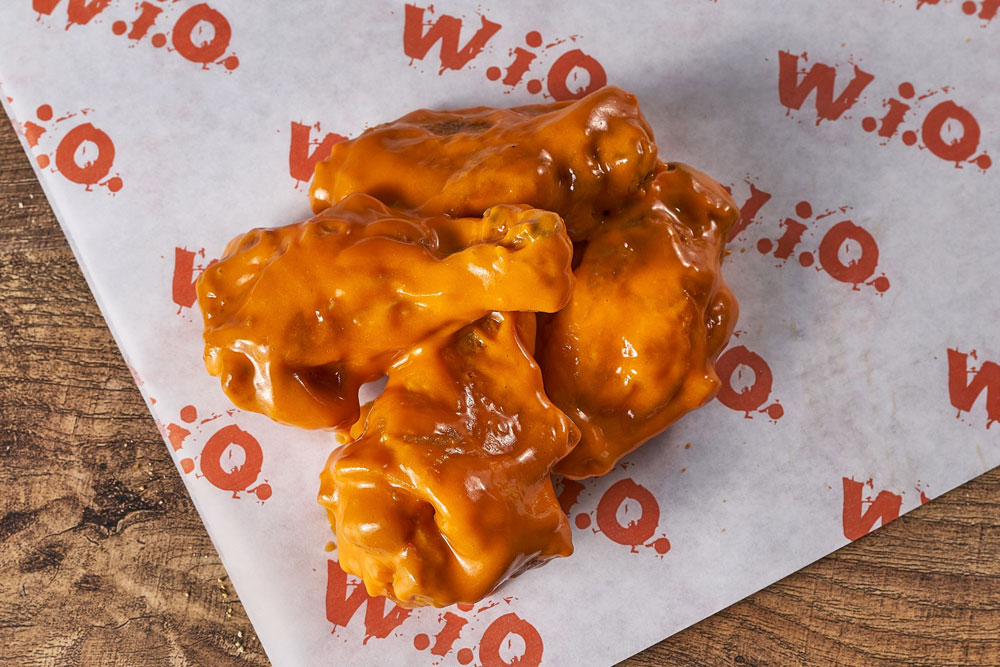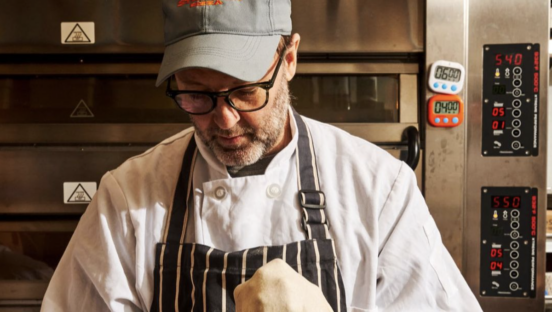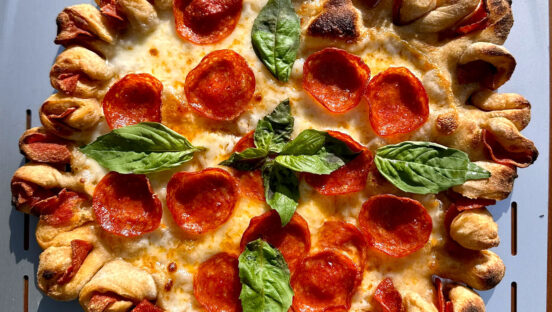The highest-rated independent pizza place in America, according to a new survey from OnDeck based on Yelp data, doesn’t actually serve pizza at all.
So says the Palestinian-American family behind Z&Z Manoushe Bakery in Rockville, Maryland. In a video on their website, the Dubbanehs make it abundantly clear: Z&Z’s specialty, manoushe, might look like pizza, but it’s a Middle Eastern flatbread that predates the classic pie by many centuries. And it’s quite different, too, with no mozzarella or tomato sauce, since those ingredients weren’t available in the Middle East when manoushe first emerged.
In the OnDeck survey, released this week, Z&Z ranked as the No. 1 highest-rated restaurant in Yelp’s pizza category with a 4.9 rating. OnDeck’s results differ dramatically from Yelp’s own list of America’s top 100 pizzas because OnDeck focuses solely on restaurants receiving the highest Yelp rating out of 5 stars, while Yelp bases its list on recommendations from Yelp Elite reviewers (made up of trusted reviewers and influencers).
Read more about OnDeck’s list of the country’s top 10 independent pizzerias here.
Brothers Danny and Johnny Dubbaneh own and operate Z&Z Manoushe Bakery, along with their restaurateur parents, Issa and Muna Dubbaneh. The latter grew up in Palestine and Jordan respectively before immigrating to the U.S. and formerly owned the Chicken Basket in Gaithersburg, Maryland.
“Za’atar and olive oil literally runs through our veins,” Danny said in a video posted on Z&Z’s YouTube channel.
He noted that a recipe for manoushe appeared in a 10th century Baghdad cookbook, Annals of the Caliphs’ Kitchen. So maybe it could be seen as a precursor to pizza?

Z&Z Manoushe Bakery / Instagram
Z&Z started selling this ancient flatbread dish at farmers markets in the D.C. area in 2016. “The one thing we heard the most was, ‘Ooh, is that pizza?’ And while it was easiest to describe manoushe as a sort of Middle Eastern pizza—it’s dough with toppings, it’s baked—but that’s kind of where the similarity with pizza ends,” Danny explained. “And while we understand the desire to make unfamiliar foods familiar, we became pretty adamant that people came to know the manoushe as a manoushe.”
The Dubbaneh brothers opened their brick-and-mortar restaurant in October 2021 in a space that once hosted their grandfather’s fried-chicken eatery. They also offer a line of frozen manoushe available in select Whole Foods stores.
Z&Z’s manoushe uses a flatbread that’s common in cuisine in countries like Jordan, Palestine, Lebanon and Syria. The Dubbanehs bake the bread briefly on a dome-shaped griddle oven that’s fired by wood. “It creates what we think is the perfect crispy yet pillowy texture…to slide on wonderful toppings,” Danny said.
Crucial to a standard manoushe recipe is za’atar, a blend of Middle Eastern herbs—wild thyme, toasted sesame seeds, sumac and olive oil—that’s spread over the flatbread after it’s baked. “This is the one manoushe that probably evokes the most nostalgia for everyone,” he said, adding that some Z&Z customers will even bring their own za’atar blend to Z&Z for a custom-made manoushe.
A Z&Z manoushe called the Lebanese Bride is topped with labneh, a strained yoghurt with a creamy texture and a salty/tangy flavor. “It’s often sprinkled with za’atar,” Danny said. “It has tomatoes, cucumbers, mint, drizzled with beautiful olive oil—you can’t have labneh without olive oil. This is another one that was huge in our childhood.”
Want cheese on your manoushe? Z&Z will give it to you, but it’s “not your usual cheesy suspect,” he pointed out. “The most popular [cheeses] are traditionally ackawi, a salty, brined white cheese, and kashkaval, a Bulgarian sheep’s cheese.” At Z&Z, an item called the Jibneh features both of those cheeses along with mozzarella and a sprinkle of za’atar.
For meat lovers, the Lahm Bi Ajeen features a mix of minced beef with diced onions, tomatoes, parsley and various spices.
Danny said Z&Z’s type of wood-fired oven dates back to the ancient Phoenicians and produces a crust that’s crispy on the outside and chewy on the inside.
“Everything we serve, you could potentially eat with your hands—which is how we like it,” Dubbaneh told Washingtonian as Z&Z was getting ready to open in 2021. “These are the foods we love. These are the foods we grew up on. We know a lot of people feel the same way, and we want to share it.”



